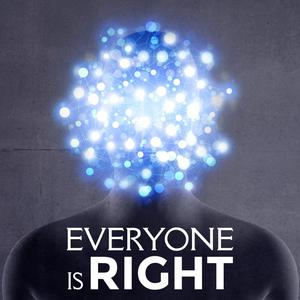The Art of Integral Communication: How to Have a Turquoise Dialectic [HIGHLIGHTS]
Watch the full discussion here:
https://integrallife.com/the-art-of-integral-conversation
Dr. Keith Witt and Corey deVos explore the concept of “turquoise dialectic” – a sophisticated form of integral discourse that emerges at the later stages of human development. Drawing upon their deep understanding of adult development and integral theory, they explore the feeling and transformative potential of the turquoise “we-space”, and how we might create the conditions for this type of conversation to unfold.
What is a “turquoise dialectic”?
The term “dialectic” originates in ancient Greece, signifying the various methods of reasoning and discussion in order to discover the truth. It is most often associated with the work of Georg Wilhelm Friedrich Hegel, whose well-known process of “thesis, antithesis, synthesis” is often regarded as a fundamental aspect of integral thinking and sense-making. In this discussion, we refer to the term “dialectic” to represent a fluid, multidimensional form of discourse that acknowledges the constructed nature of all perspectives, and seeks to both situate and synthesize those perspectives (and their associated methods of knowing) into a more coherent understanding of reality — consciously inquiring into the frameworks and assumptions that shape our perceptions and understandings of the world around us.
This kind of Turquoise discourse facilitates the emergence of new forms of consciousness, co-creating novel ways of being and understanding that align with the interdependence and mystery of existence. Communication becomes a sacred practice of conscious participation in the evolution of humanity and the kosmos, demanding radical humility, transparency, and a release of fixed identities. Participants continually challenge themselves to expand awareness, embrace paradox, and open to the unknown, engaging in an ongoing exploration of the frontiers of human potential.
How do we set the conditions for a turquoise dialectic?
Imagine that every conversation is something like a poker game, where the players decide the rules before each hand. If you’ve got five players at the table, and each is coming from an Amber stage of development, then the rules will be set up according to Amber-stage views and values, and it will basically be an Amber game. If all the players are Turquoise, you’ll get turquoise rules, a turquoise game, and therefore a turquoise we-space. It’s as simple as that!
Or is it?
Human beings, after all, are far more complicated than this. We are not developmental stereotypes, we instead possess an entire stack of evolutionary intelligences within us — all of which are constantly growing and adapting, and any of which we may be inhabiting at a given time, depending on the context we find ourselves in. Turquoise people can happily play Red games, Amber games, Orange games, and so forth, because all of these stages are still alive within them.
The trick, therefore, is not just getting the right people to the table, but also establishing the right rules and norms that are most conducive to turquoise enfoldment. Of course, these are not the sorts of strict rules and regulations that we might find in an Amber game. They are rather a series of basic guardrails, orienting generalizations, and attractor points that can help the group to self-organize, participants to self-regulate, and the dialectic itself to self-govern. It’s about “rigging the game” so that authentic transformation, deep empathy, and collective sense-making become the winning strategies, allowing us to create a space together that invites and includes all of us, and all of the multitudes we contain, while guiding us toward our highest and wisest possible Self.
29 March 2024, 8:20 pm
